What was the first game you upgraded your PC to play?
Tell us about the game that got you to drop some money on a better PC.
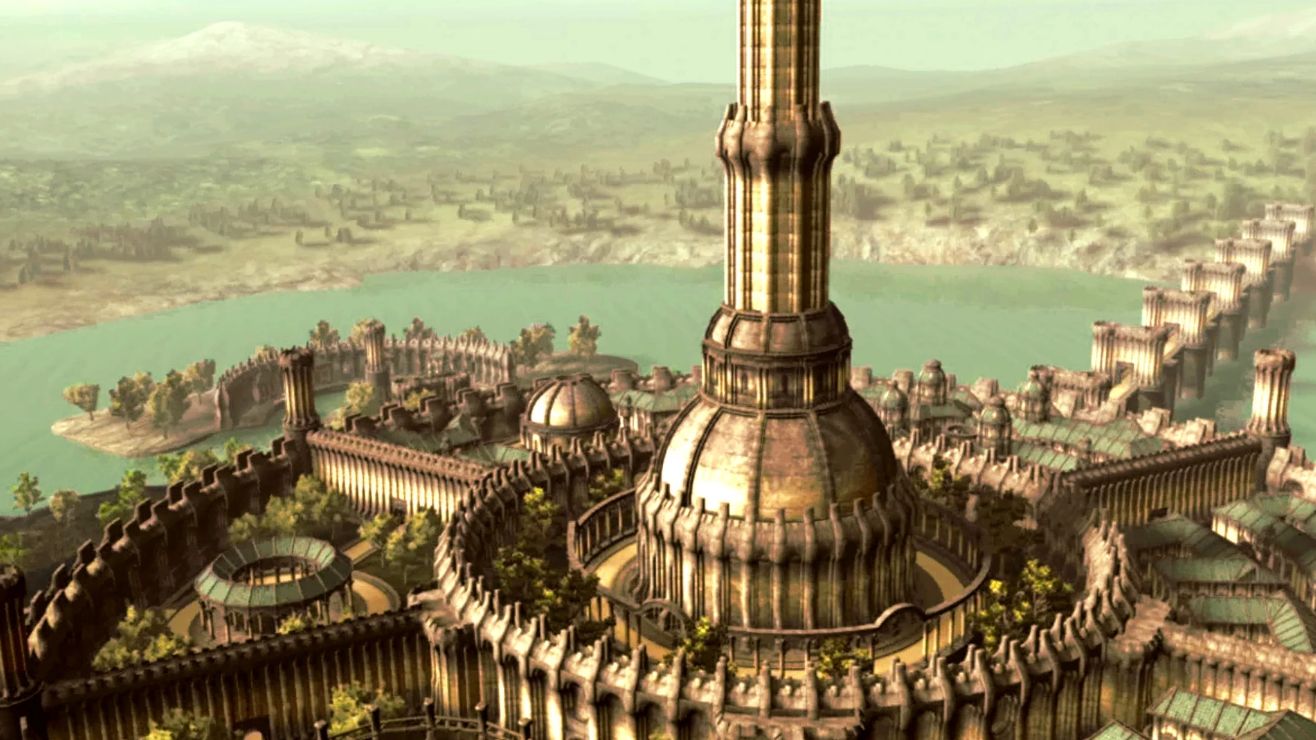
Read the complete archive of PCG Q&As here. Below are some highlights:
- Which game character do you hate?
- What's your favorite non-violent game?
- When is teabagging okay in FPS games?
It's a familiar experience: you spend a bunch of money on a dazzling PC, then four years later it's somehow just hovering above minimum specs for that new FPS you've had your eye on. You check your bank account. An upgrade is just about within reach, sort of. You put your holiday plans on hold, because this game can't wait damn it.
This weekend, we ask: which game made you upgrade your PC? Here are our answers, but more importantly, we'd like to read your comments below.
Philippa Warr: Dota 2
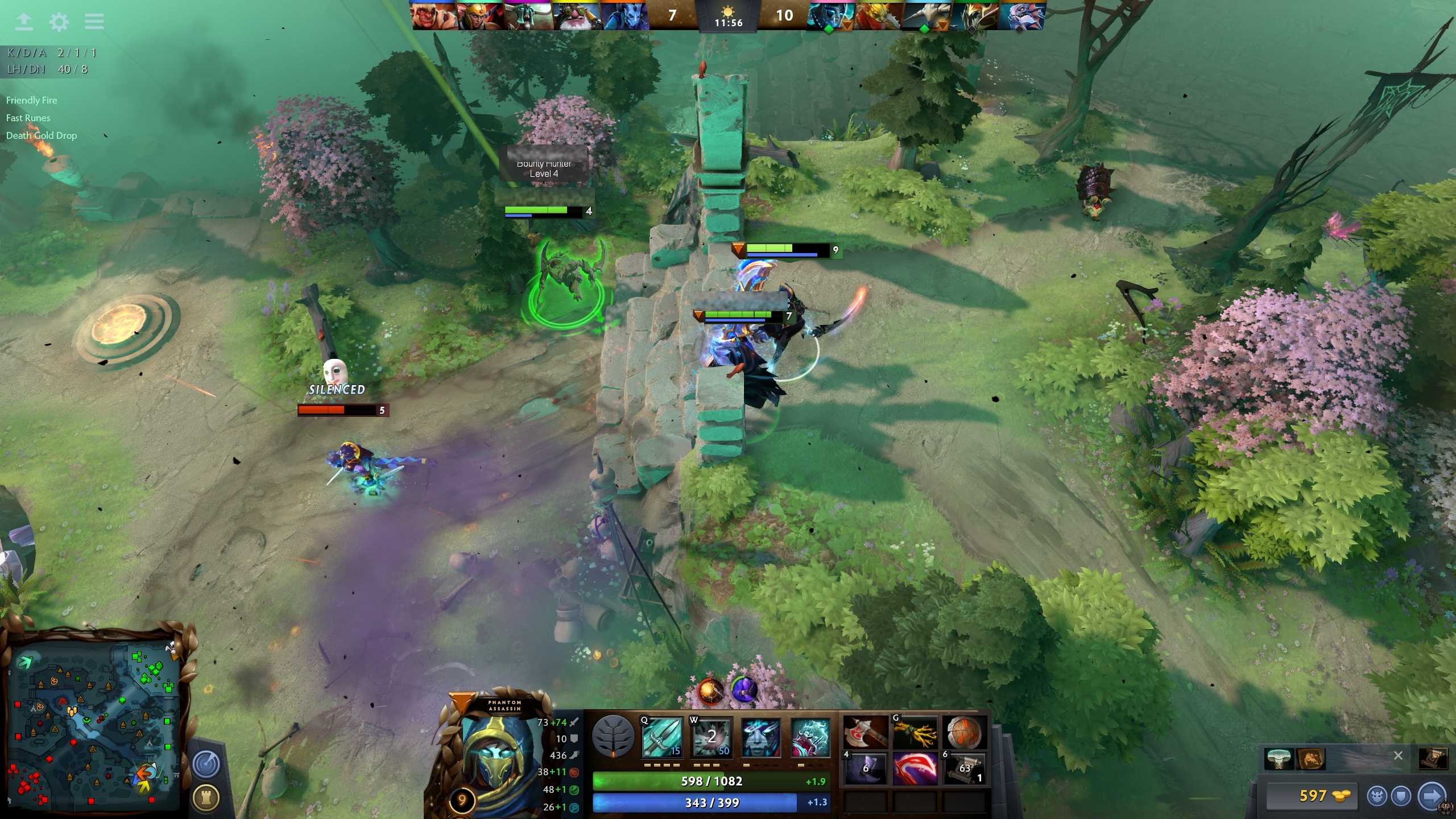
I put off buying a desktop PC for as long as possible, making use of a bootcamped Macbook to play games including Dota 2. It was a well-documented disaster. I had to run Skype through my phone to use voice chat with friends, which meant I couldn't have sound on from my laptop, so I spent months of Dota not playing with any of the sound cues which are essential. I was also often playing while sitting on a bed, using a Where The Wild Things Are gift box to rest my mouse on. Oh, and the button you use to ping the map in Dota is right next to the button which, on my bootcamped setup, crashed the game.
When I finally got a desktop PC the first game I installed was Dota 2, and gosh was it an eye-opening experience! I didn't exactly buy the PC to play Dota, it was more that the Dota problems exemplified the limitations of the setup when trying to do anything related to this hobby, and the non-bootcamped side of things was struggling to keep up anyway. That's my story and I'm sticking to it. I definitely definitely didn't drop cash on a whole new PC to throw tiny casks at people as a wizard.
Samuel Roberts: Medal of Honor: Allied Assault
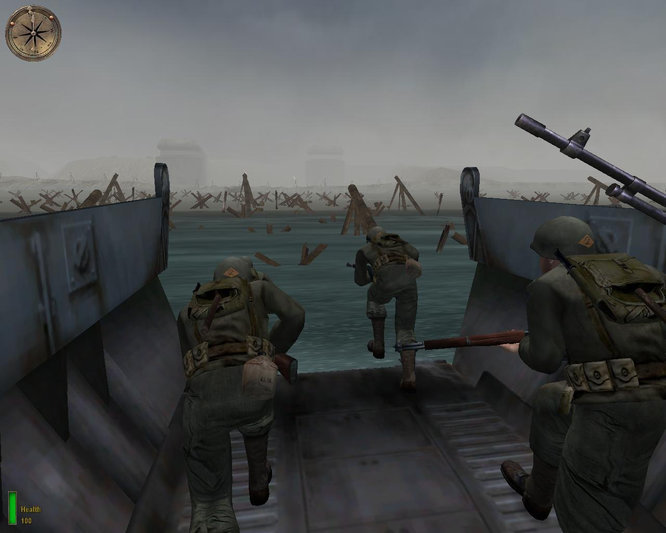
As an adult, I've upgraded a rubbish PC to play Alien: Isolation, because playing that at double the framerate of PS4 owners was incredibly important to me back in 2014 just after I joined PC Gamer. As a kid, though, hardware upgrades were infrequent, and basically came when my dad could afford to buy a secondhand PC off of one of his colleagues. After I told him all about trying Medal of Honor at my friend's house and how I'd never played anything that cinematic before, he managed to magic up a PC that could run it (albeit not brilliantly). World War 2 games were made for him.
This kicked off my second era of PC gaming as a kid. I picked up Mafia, Jedi Knight 2, Return to Castle Wolfenstein and more, games which all ended up having a pretty profound effect on my tastes to come. The lesson, for any kids reading whose parents are holding out on an upgrade, is to convince them that they're missing out on a game that was made specifically for their interests.
Wes Fenlon: C&C: Tiberian Sun
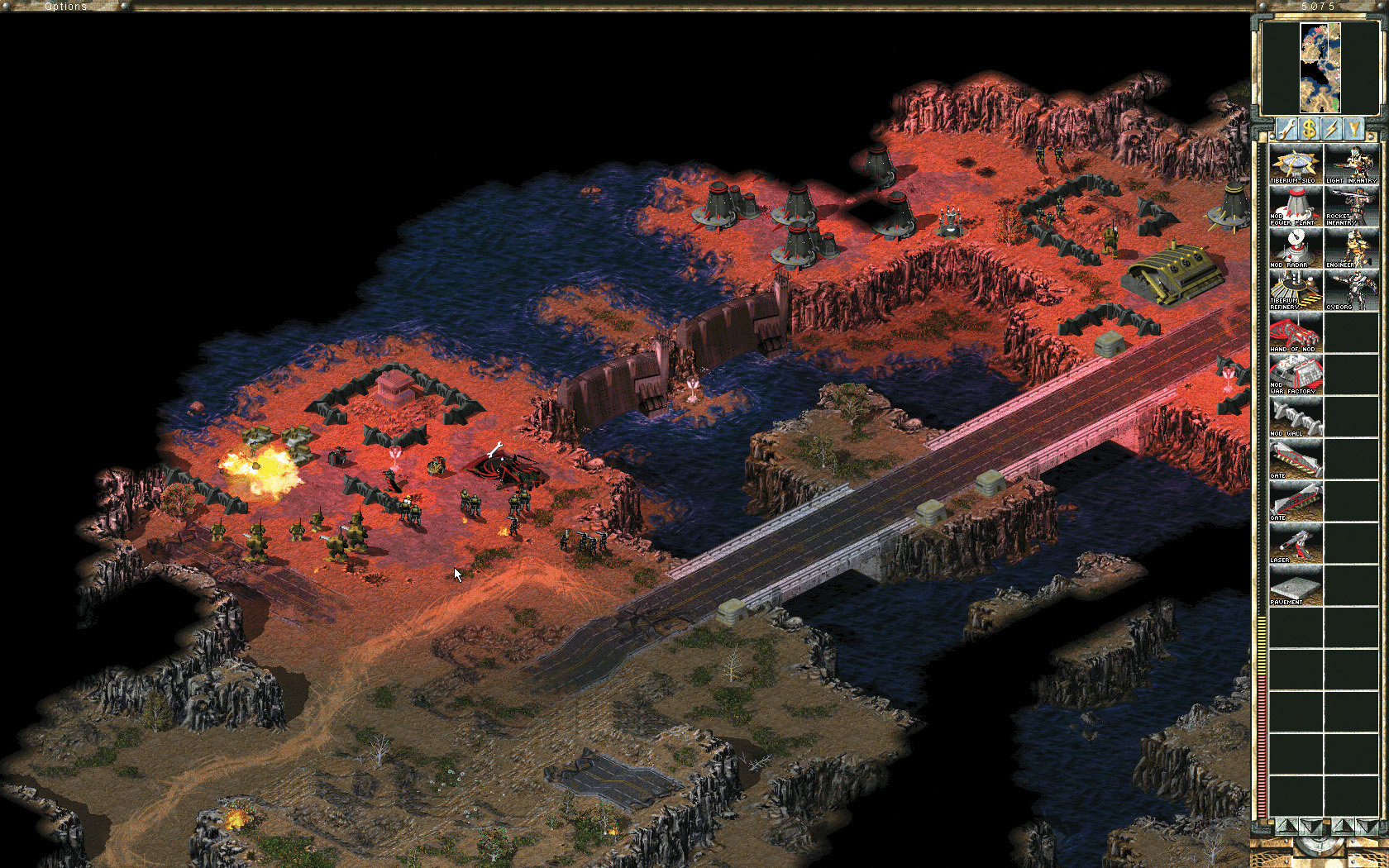
The first game I remember being heartbroken I couldn't play was Command & Conquer: Tiberian Sun. Our home PC had a 133 MHz Pentium; the game needed a 166 MHz. Eventually I got my very own PC, a much slower hand-me-down 486 that I'd use to play LucasArts adventure games and the like.
Keep up to date with the most important stories and the best deals, as picked by the PC Gamer team.
Fast forward to 2006 and I had an HP laptop in college, with an ATI GPU inside. The hardware wasn't upgradeable, but I remember having issues with outputting a video signal to my brand new, hot shit LCD TV, and I wanted the best possible performance, so I turned to some old voodoo: Omega drivers. Back then, there were actually custom graphics card drivers that promised to improve performance and give you more features. I vaguely remember them being a complete pain in the ass, and they probably never made my games run better. But the Omega drivers did support more resolutions and helped me output a signal to my TV, so at the end of the day it was a win. And I felt elite.
Jarred Walton: Wing Commander
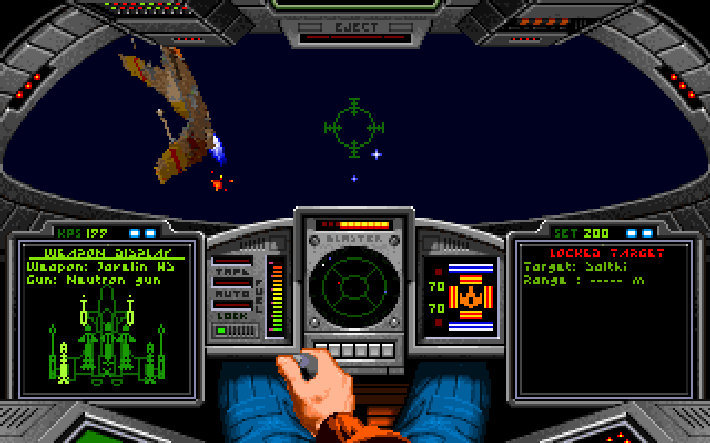
I see how it is: let's trot out questions just to make Jarred feel incredibly old! Well, let me tell you about my first PC.
It was a 286 12MHz with 2MB RAM, 40MB hard drive, both 5.25-inch and 3.5-inch floppy drives, with an Adlib sound card and some generic VGA adapter. I saved up money all summer during 1990 to buy this PC, as before this I was switching between using my dad's PC when I was at his house, and playing games on an incredibly slow Commodore 128 at my mom's place. I knew the C-64/C-128 scene was dying, and I wanted to get a proper PC when I took the plunge. I had also learned all sorts of arcane rituals necessary to free up as much of the base 640K memory as possible (config.sys and autoexec.bat hacking were skills I acquired in my gaming pursuit). $2,200 later, I was the owner of this awesome PC, which was already quite outdated when I bought it, but I simply couldn't afford a 386. (Those were the Core i9 of the day, at something like $800 just for the chip.)
Everything went great for a couple of months, and then Wing Commander launched. The back of the box proclaimed "Every image on this box was taken from the game," which looked awesome, but my poor 286 could barely run the game and it looked nothing like the box art and was sluggish as hell. Commence me weeping and wailing and pining for a 386. Thankfully, my dad pulled some strings, managed to sell my 286 for more than I paid for it ($2,500), and I had earned some more money since the initial purchase. I took the $2,500, added $500 of my own, and upgraded to a 386 16MHz, with 4MB RAM, an 80MB hard drive, a Sound Blaster card, an SVGA card, and for added awesomeness I splurged on a Roland CM32-L (MT32 compatible) MIDI sound module ($550 just for the CM32-L).
And let me tell you, it was all worth it! The graphics still didn't look like the box art, but the game ran much better, and the full MIDI orchestral score was miles above any other games I had played. I still have fond memories listening to MP3 versionsof the Roland MIDI files. Anyway, don't complain to me about the cost of gaming PCs today. I spent $3,000 as a 16-year-old for what was still several steps down from a top-of-the-line system. And if you want to build a great gaming PC for a third of that, you can. PC gaming has never been more accessible, and the vagaries of himem.sys and emm386.sys are thankfully far in the past. You kids never had it so good. Now where's my cane?
Andy Chalk: Doom
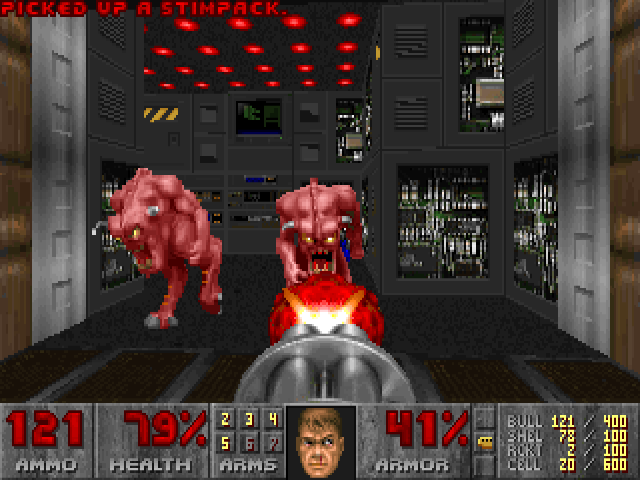
I'd had a 286 for a few years when Doom came out, and by and large I was quite happy with it. So when I read that Doom required a 386, I headed up to the city, where there was a big computer store—and I tried to negotiate. "What's really the difference between a 286 and a 386?" I asked. "It's just a little faster, right? I can still run this game on it, right? It'll just be a little slower, right?" But no, it was not right (and the guy was kind of a dick about it, too), and so I was faced with a choice that was really no choice at all. I scrounged and saved and begged and borrowed and put off college for a few more years, and eventually I bought myself a Fujikama 386SX/25.
I don't remember much about it, but it ran Doom, and basically my life, for the next couple of years. Took me a year just to pay the damn thing off. It was totally worth it.
Chris Livingston: Oblivion
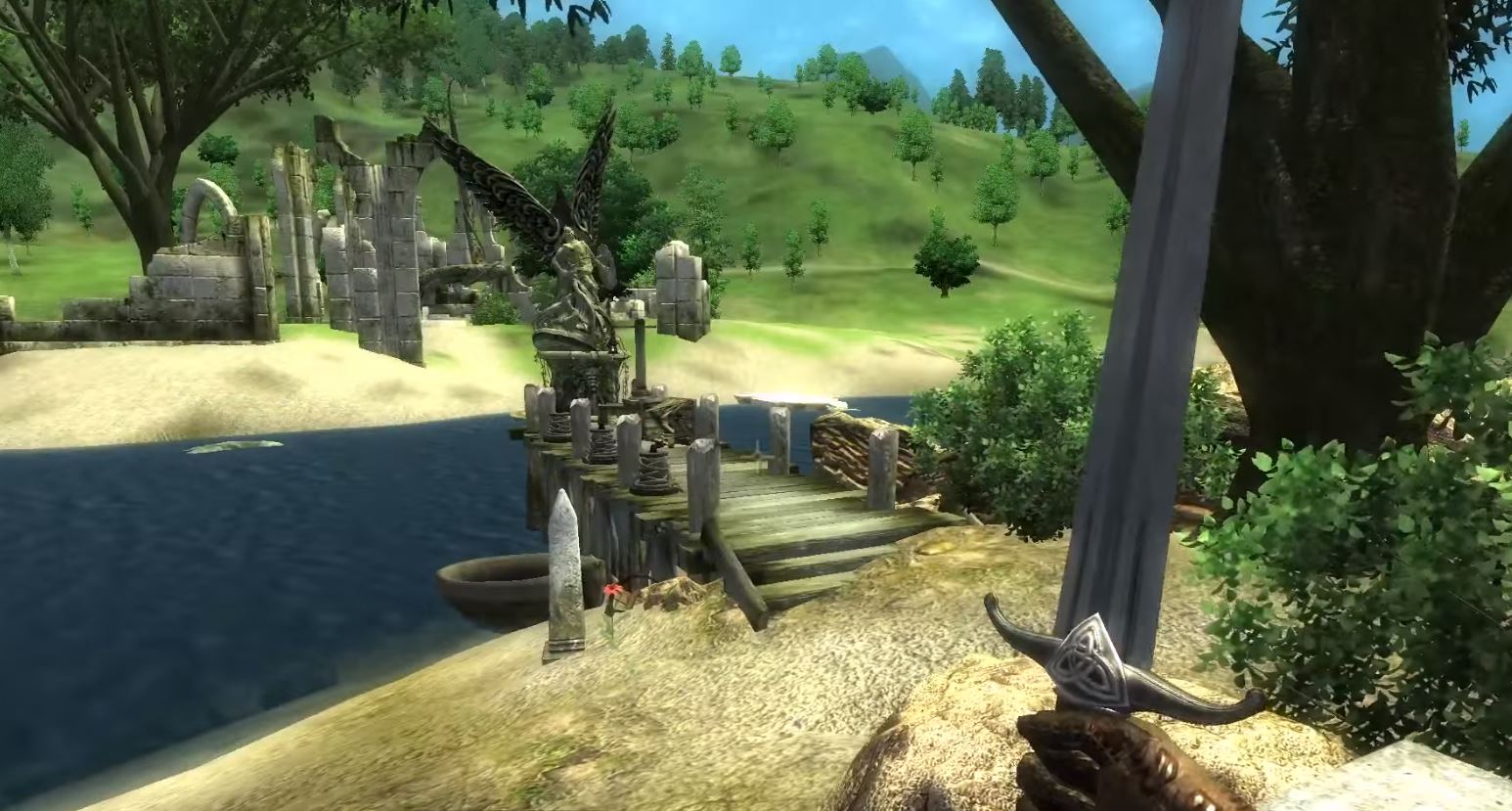
I could tell myself I needed a new PC anyway, and would have bought one for reasons other than gaming, but I'm pretty sure The Elder Scrolls IV: Oblivion had a lot to do with it. I'd fallen head over heels for Oblivion back in 2006, and was perfectly happy playing it on whatever slow-ass PC I had at the time (sorry I can't recall the specifics of the actual hardware). It still nagged at me that it just didn't look like the screenshots I was seeing and naturally the first thing I did when I got my new PC (I can't remember the specs of it, either) was load up Oblivion. The difference was astounding to me, like night and day. "Oh, wow, I can see Imperial City even when I'm not standing with my nose pressed up against it. Oh, wow, there is actually detail on my weapons and armor. Oh, wow, trees look like trees instead of like they've been cut out of construction paper."
It's probably for the best that I can't find screenshots from that PC because they'd probably look laughably unimpressive today, but at the time it was like my new computer let me step into an entirely new world.

Chris started playing PC games in the 1980s, started writing about them in the early 2000s, and (finally) started getting paid to write about them in the late 2000s. Following a few years as a regular freelancer, PC Gamer hired him in 2014, probably so he'd stop emailing them asking for more work. Chris has a love-hate relationship with survival games and an unhealthy fascination with the inner lives of NPCs. He's also a fan of offbeat simulation games, mods, and ignoring storylines in RPGs so he can make up his own.

